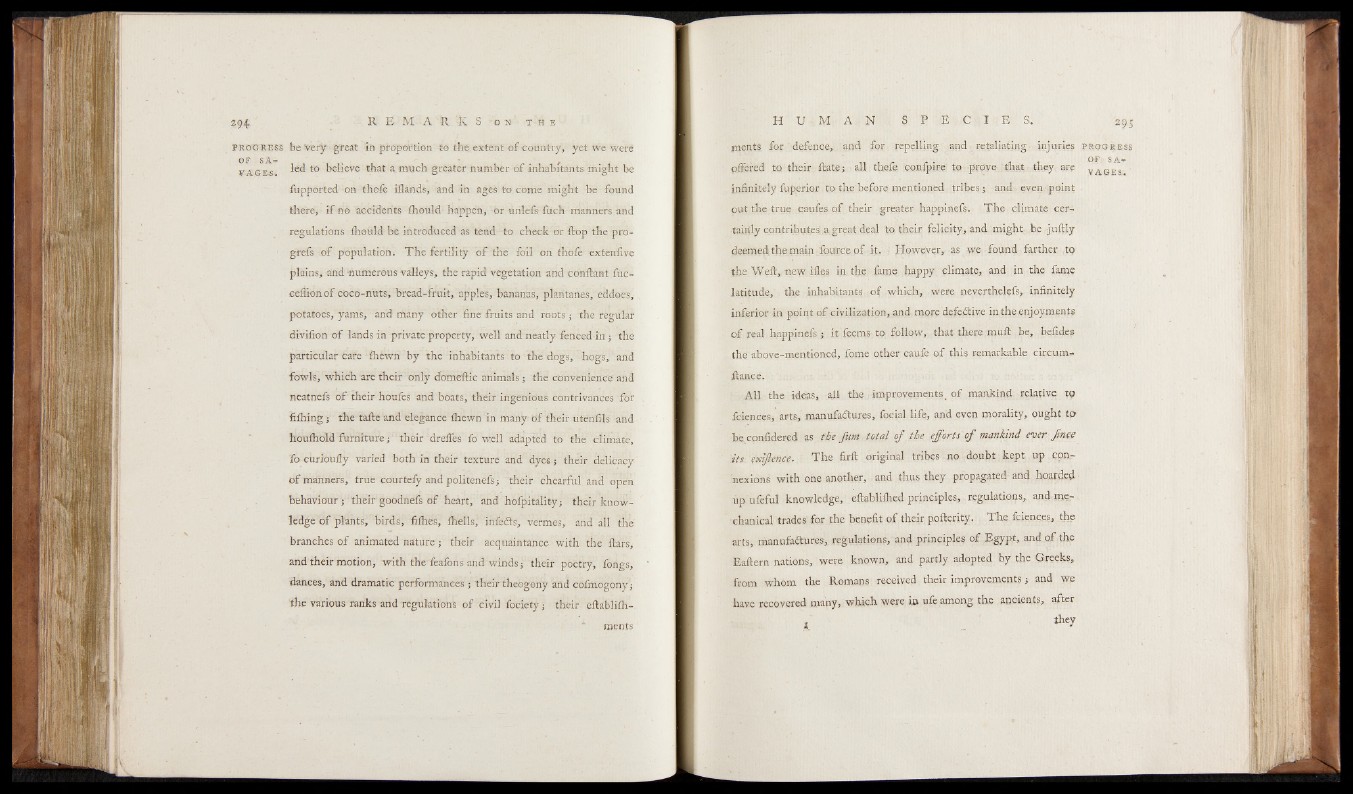
294 R E M -A R K. S o n t h e
be Very great in proportion -to the extent o f country, yet we were
led to believe that a much greater number of inhabitants might be
fupported on thofe iflands, and in ages to come might be found
there,- i f ne accidents fliould happen, or unlefs fuch manners and
regulations fliould be introduced as tend to check or flop the pro-
grefs o f population. The fertility o f the foil on thofe -extent!ve
plains, and -numerous valleys, the rapid vegetation and conftant fuc-
ceflkm o f coco-nuts, bread-fruit, apples, bananas, plaritanes, eddoes,
potatoes, yams, and many other fine fruits and roots, the regular
divifion o f lands in private property, well and neatly fenced-in , the
particular Cafe fliewn by the inhabitants to the dogs, hogs, and
fowls, which are their only domeftic animals, the convenience and
neatnefs o f their houfes and boats, their ingenious contrivances 'for
fiihing, the fafte and elegance fliewn in many- Of their utenfi-ls and
houfliold furniture, their dreffes fo well adapted to the climate,
To curiouily varied both in their texture and dyes, their delicacy
o f manners, true courtefy and politenefs, their chearful and open
behaviour, their- goodnefs of heart, and hofpitality, their knowledge
o f plants, birds, fifties, fhells; infedts, vermes, and all the'
branches o f animated nature, their acquaintance with the flats,
and their motion, with the feafons and winds, their poetry, foiigs,
dances, and dramatic performances, their theogeny and cofmogony ",
the various ranks and regulations of civil fociety, their eftablilhroents
H U ■ M A N S P E C 1 E I 2 9 5
ments for defence, and for repelling and retaliating injuries p r o g r e s s
offered to their flats, all thefe confpire to prove that they are Vj . S*s’
infinitely fuperior to the before mentioned tribes, and, even-point
out the true caules o f their greater happinefs. Th e climate certainly
contributes|a great deal to their felicity, and might- be ju flly
deemed the main fource, o f it. However, as we found farther to
the Weft, new iiles in the fame happy climate, and in the fame
latitude, the inhabitants of which, were neverthelefs, infinitely
inferior in point o f civilization, and more defective in the enjoyments
o f real happinefs, it Teems to follow, that there muft be, befide?
the above-mentioned, fome other caufe of this remarkable circum-
ftanee.
A ll the ideas, all the j improvements, o f mankind relative to
fciences, arts, manufadtures, focial life, and even morality, ought to
be confidered as the fum total of the efforts of mankind ever fiwe
its exijlence. T h e firft original tribes no doubt kept up connexions
with one another, and thus they propagated and hoarded
up ufeful knowledge, eftabliflied principles, regulations, and mechanical
trades for the benefit o f their poflerity. The fciences, the
arts, manufadtures, regulations, and principles o f Egypt, and o f the
Eaftern nations, were known, and partly adopted by the Greeks,
from whom the Romans received their improvements j and we
have recovered many, which were in ufe among the ancients, after
A